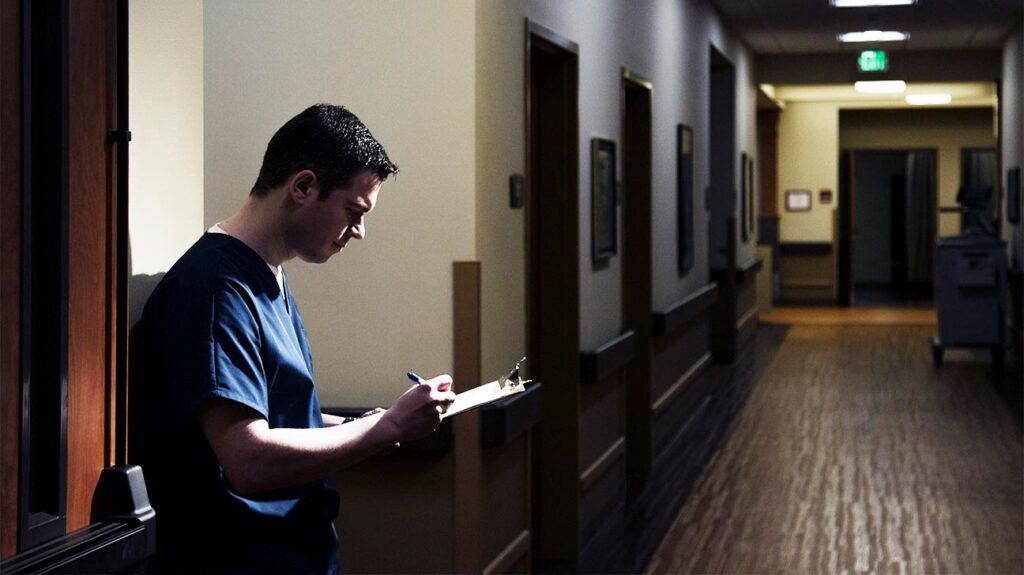Multiple sclerosis (MS) and Guillain-Barré syndrome (GBS) are autoimmune disorders that affect the nervous system. Although they have some shared symptoms, they are unique conditions.
MS is a chronic autoimmune condition affecting the protective covering of brain and spinal cord nerve fibers. This disrupts the typical transmission of electrical impulses along the nerves.
GBS is a neurological disorder affecting the peripheral nerves. Infections often trigger a sudden onset of GBS.
Unlike MS, GBS is generally not a lifelong condition. People can recover from GBS if they receive prompt treatment.
This article explores the differences and similarities between MS and GBS, including their symptoms, causes, and treatments.

MS and GBS are distinct conditions. However, both are autoimmune disorders that affect the nervous system.
MS is a chronic autoimmune condition that
Experts believe genetic and environmental factors may play a role in the development of MS. However, the exact cause of the condition is unknown.
GBS is a neurological disorder. In people with GBS, the immune system attacks the peripheral nerves outside the brain and spinal cord. GBS
Both conditions share neurological symptoms. The specific nature and onset of these symptoms can help differentiate between MS and GBS.
MS predominantly affects the central nervous system (CNS), which results in a wide array of symptoms. Symptoms tend to develop gradually and persist over the long term.
In contrast, GBS primarily targets the peripheral nerves. It manifests as acute-onset muscle weakness and sensory issues.
MS symptoms include:
- fatigue
- problems with coordination, balance, and muscle strength
- memory issues
- difficulty concentrating
- blurred vision
- numbness, tingling, or “pins and needles” in various body parts
- itching sensation
GBS symptoms include:
- muscle weakness in the legs that can spread to the upper body
- sensations of tingling and numbness
- discomfort or pain
- loss of reflexes
- changes in heart rate and blood pressure
MS and GBS share symptoms. This can sometimes make it difficult to distinguish between the two.
Additionally, MS is a challenging condition to diagnose. Research suggests that healthcare professionals initially misdiagnose around 1 in 5 people with MS.
MS is an autoimmune disorder where the immune system mistakenly targets the myelin sheath of nerve fibers in the CNS.
Risk factors
- genetic factors
- viral infections
- low vitamin D levels
- smoking
GBS often follows a bacterial or viral infection, triggering an immune response mistakenly attacking the peripheral nerves. A common infection that experts link to GBS is Campylobacter jejuni. It’s a bacterium with links to foodborne illness.
In
MS treatments
- Disease-modifying therapies: These medications aim to modify the course of MS by reducing relapses, managing symptoms, and slowing disease progression.
- Immunosuppressants: Medications such as corticosteroids or other immunosuppressants help manage inflammation in people with MS.
- Symptomatic treatments: Doctors may prescribe medications to address specific symptoms of MS, including muscle spasms, fatigue, and pain.
- Physical therapy: Exercise and physical therapy can help people with MS maintain mobility and manage MS-related symptoms.
GBS treatments
- Intravenous immunoglobulin: High dose immunoglobulin therapy is a standard treatment for GBS, helping reduce symptom severity and duration.
- Plasma exchange (plasmapheresis): This procedure removes and replaces blood plasma, aiming to remove harmful antibodies responsible for nerve damage in people with GBS.
- Supportive care: Pain management, physical therapy, and assisted ventilation may help people as they recover.
MS is a
The progression of MS varies widely. Some people have mild symptoms, while others may experience significant disability over time.
Advances in treatment have improved outcomes and quality of life for many people with MS.
GBS is
The outlook for people with GBS depends on the severity of their initial symptoms and the speed at which a person receives treatment.
With prompt treatment, many people recover fully or experience significant symptom improvement.
However, in severe cases, people may experience lingering symptoms.
The following are questions people frequently ask about MS and GBS.
Can you have both MS and GBS?
Having MS and GBS at the same time is
What are the first symptoms of MS vs. GBS?
There is no typical pattern of MS symptoms. That said, one of the most noticeable first signs of MS is a problem with vision called .
Early symptoms of GBS include weakness and tingling in both legs. In
Multiple sclerosis resources
Visit our dedicated hub for more research-backed information and in-depth resources on multiple sclerosis (MS).
Multiple sclerosis (MS) and Guillain-Barré syndrome (GBS) involve an autoimmune reaction. MS is a lifelong condition, while people with GBS often recover with no lasting effects.
Treatment for both conditions differs but may include medications, such as corticosteroids, to manage inflammation.
